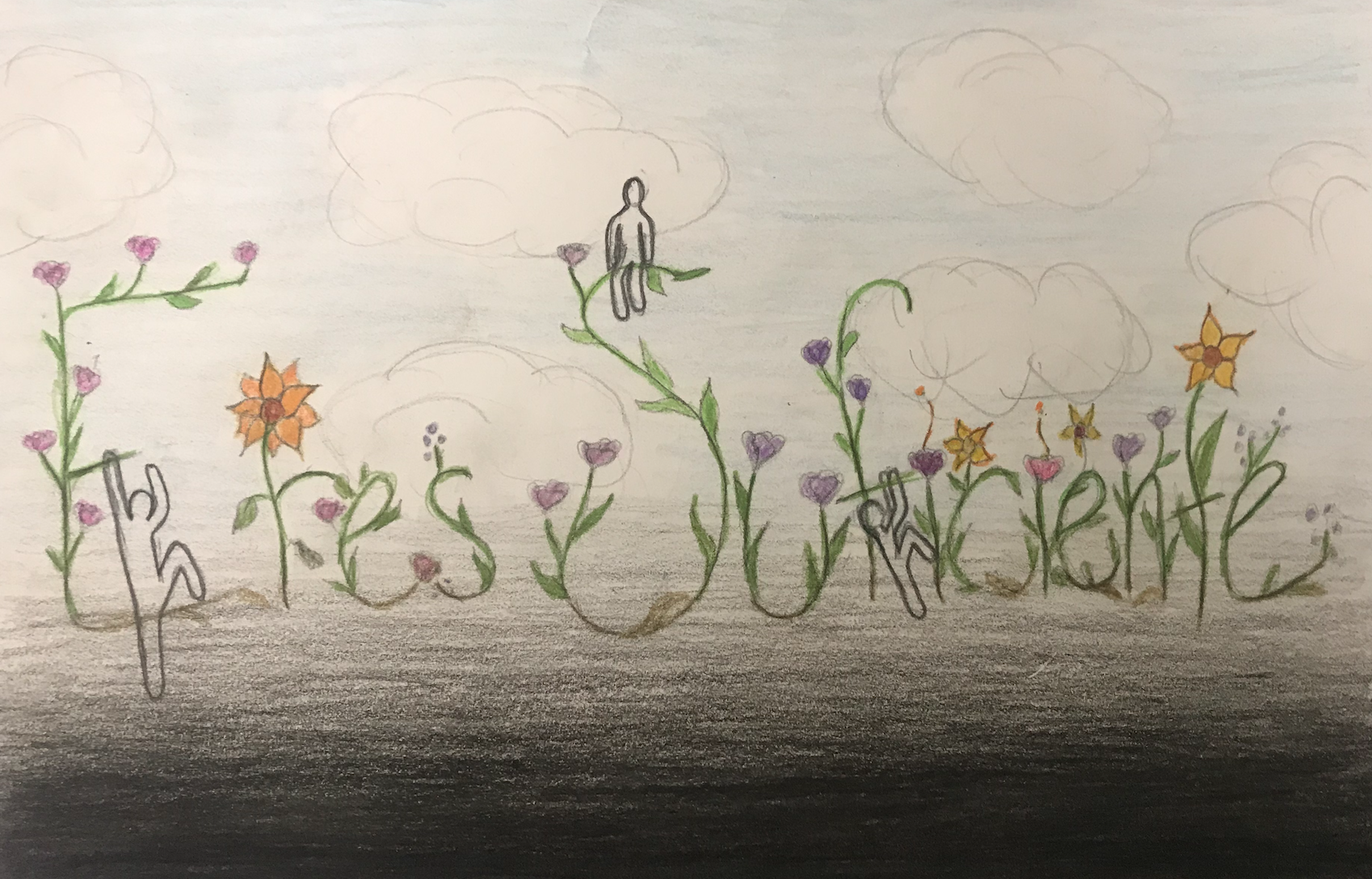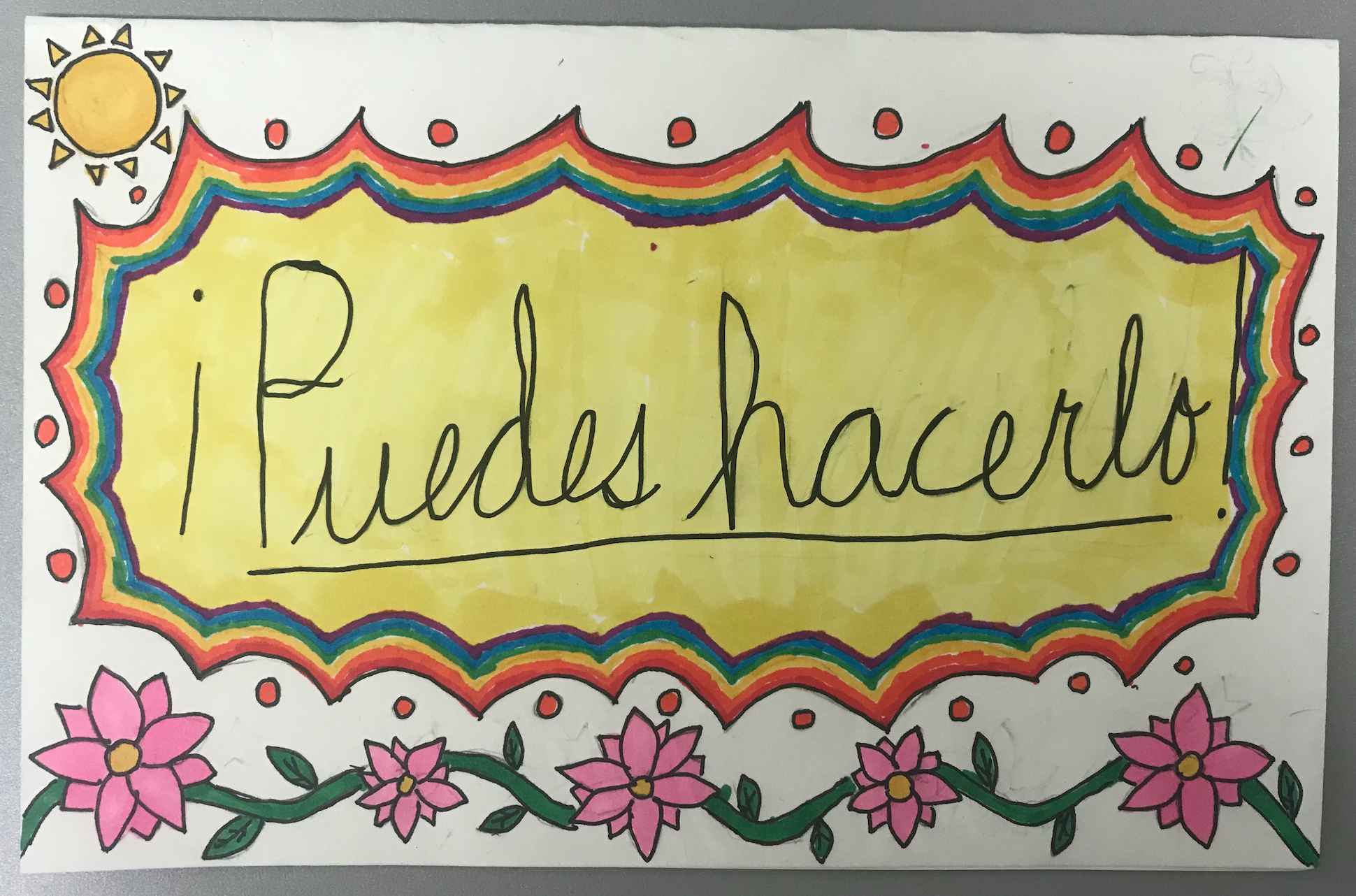Dos Palabras (A1)
Toward the end of trimester two, students in A1 had the chance to read the short story “Dos Palabras” (or “Two Words”) by Isabel Allende. Like many of Allende’s works, this story is one of magic realism, and served as an interesting complement to our discussions about Argentina regarding politics, war, and the power of words. Like Argentina, Chile (where Allende is from) also suffered from a devastating military dictatorship during the 1970s and 80s, and themes of political corruption and war violence are prevalent in “Dos palabras.” The protagonist, Belisa Crepusculario, however, helps put an end to the civil war in the story by selling an election speech to the Colonel, who is a candidate for president. Additionally, Belisa gifts the Colonel two extra words, with which the Colonel becomes obsessed, and that ultimately cause him to “become as gentle as a lamb.” The reader never learns exactly what these two powerful words are, but our class had fun guessing what they might be. What do you think these two words could be?
While reading the story, students considered several questions about the power of words and the role of such a strong female protagonist. Please see below the results of our work for two projects associated with this story and our discussions of these themes.
Esmé: I liked this project because the story we read for it was really interesting. It was a really fascinating story to talk about and analyze.
Zayna: It was really interesting reading a story in Spanish written by a Chilean writer. For my Flipgrid video, I reflected on the significance of the protagonists’ last name, Crepusculario. Thinking about this significance was another example of the power of words!
Nico: This project encouraged me to really think about the connections between the words and their deeper meanings.
Absinth: I really enjoyed this project because I was able to take something that I love doing (drawing) and turn it into the project. It was super fun and it made me challenge myself to design the lettering, background, and the saying to have meaning.
La expresión creativa: Dos palabras
As a culminating project for this short story, students chose two words that are important to them at this point in their lives. They then illustrated these two words to visually represent their significance. In their artist statements, students discussed why they chose the two words they did, what meaning those two words hold for them at this point in their lives, and if those two words might change in the future. Lastly they discussed their artistic choices: Why did they choose to illustrate the words in the way that they did, and what was the artistic process like for them?
El pensamiento crítico: Las preguntas
After considering the questions below, each student chose one to explore in depth, supplementing their answers with evidence from the story and Allende’s biography. Students recorded their answers in a brief video.
En muchas de las obras de Allende - tanto en sus cuentos como en sus novelas - se presenta a protagonistas femeninas fuertes que manifiestan atributos sumamente positivos como: confianza, integridad, independencia, etc. Claramente, Belisa Crepusculario (la protagonista de “Dos Palabras”) es una de estas mujeres. ¿Cómo muestra Belisa estas características en el cuento?
A través del cuento, se ven indicaciones del poder de las palabras. ¿Cómo se manifiesta este poder?
Varias personas han notado que el nombre Belisa es un anagrama de Isabel, el nombre de la autora. ¿Crees que Allende escogió este nombre a propósito, para referirse indirectamente a sí misma? Explica.
Crepúsculo significa “twilight” o “dusk.” Una definición en español es “claridad o luz que procede a la salida del sol en la mañana o la que sigue la puesta del sol hasta que anochece.” Sabiendo esto, ¿cree que haya una conexión entre el apellido (Crepusculario) que Belisa se autonombró y el significado de esta palabra? Explica.
Pregunta 1
Pregunta 1
Pregunta 2
Pregunta 3
Pregunta 4
Pregunta 4






